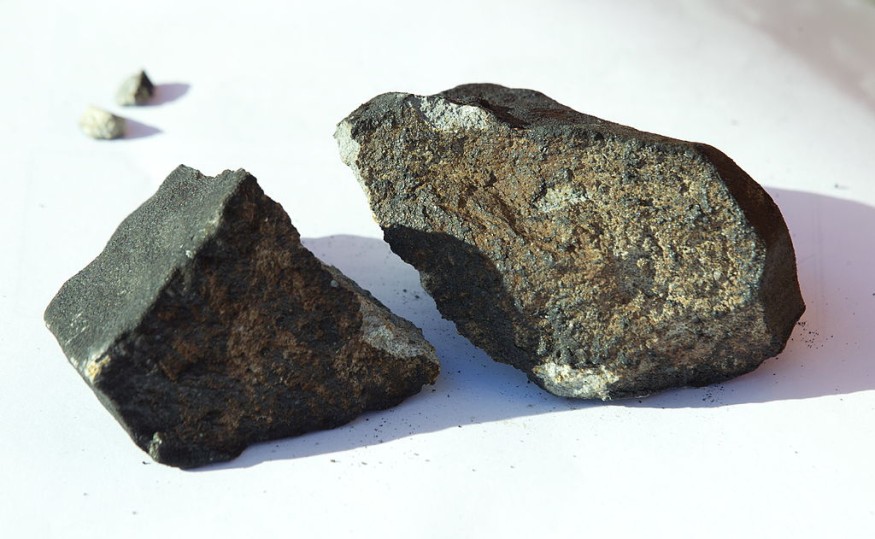
The specimen discovered in a French garden is actually a 1.5-pound meteorite that broke into three pieces when it hit the ground with a loud bang that damaged a material property, according to experts.
Fireball to Meteorite Split Three Ways
The Fireball Recovery and InterPlanetary Observation Network (FRIPON), a French citizen science project, said that hundreds of locals in France witnessed the fireball, also known as a bolide, as it descended to Earth on the night of September 9 and 10. It was also captured on several cameras and posted on social media platforms.
🇫🇷☄️ INSOLITE | Un fragment de #météorite s’est écrasé dans le jardin d’une habitante du Cher il y a quelques jours.
— Cerfia (@CerfiaFR) September 18, 2023
En France, environ deux météorites tombent sur le territoire chaque année. Malheureusement beaucoup ne sont jamais retrouvées. pic.twitter.com/g95TeEZHsE
A woman from central France contacted FRIPON while they were attempting to determine where the meteor had fallen on Wednesday. She believed that the meteor had fallen in her garden. The woman that she was awakened by a loud noise in the middle of the night and found pieces of rock in her yard the next morning.
The team set out to look into the claim and discovered that the meteor had broken up into three pieces that together weighed around 1.5 pounds when it had fallen into her garden.
Confirming Meteorite Specimens
The specimen, according to Sylvain Bouley, the Astronomical Society of France president, had a lovely fusion crust of rock that had melted upon arrival into the atmosphere. The inside was extremely clear, and there were shining gravels that hinted at the existence of metal. He clarified that each of them indicates traits of a meteorite.
When a spacecraft travels at a speed of more than 7.5 miles per second into the Earth's atmosphere, it pushes air that is in front of it, heating it to a high temperature, which causes the rock's surface to 'ablate'. The University of Southern Queensland's Jonti Horner, an astrophysics professor, said that the very surface layer becomes overheated and vaporizes.
This burning process whittles the object away from the inside out as it continues to push through the environment until friction with the atmosphere causes it to slow to subsonic speeds.
Also Read : Meteorite Trove of 1800 Specimens in Yale's Peabody Museum Has Otherworldly Gem-Studded Iron-Nickel Alloy
The Bang That Broke a Garden Table in France
Rocks and ice fragments fall into the atmosphere of Earth and heat up to extremely high temperatures as they fly rapidly toward the Earth.
Bouley calculated that the French meteorite, as meteors are known after they have struck the earth, was moving at a speed of several hundred miles per hour when it struck the planet.
Bouley added that although the table was broken, there was no crater.
If a meteor is larger than typical, it will appear as a bright fireball in the sky and will plunge through the atmosphere with a blinding burst of light. Only around 5% of the initial meteor hits the ground since the majority of it is vaporized during its descent.
Strangely, when a meteor hits the ground, it is still chilly. According to Horner, the rock first experiences a very tiny layer of superheat before falling the remaining distance to Earth, which may take many minutes or tens of seconds. Although the surface will have plenty of time to cool off, the interior will still be quite chilly. This means that despite its intensely hot descent, a falling meteor has little chance to start a fire in a home or garden.
The National Museum of Natural History in France has now received the meteorite fragments that were found in the woman's garden for examination.
© 2025 NatureWorldNews.com All rights reserved. Do not reproduce without permission.





